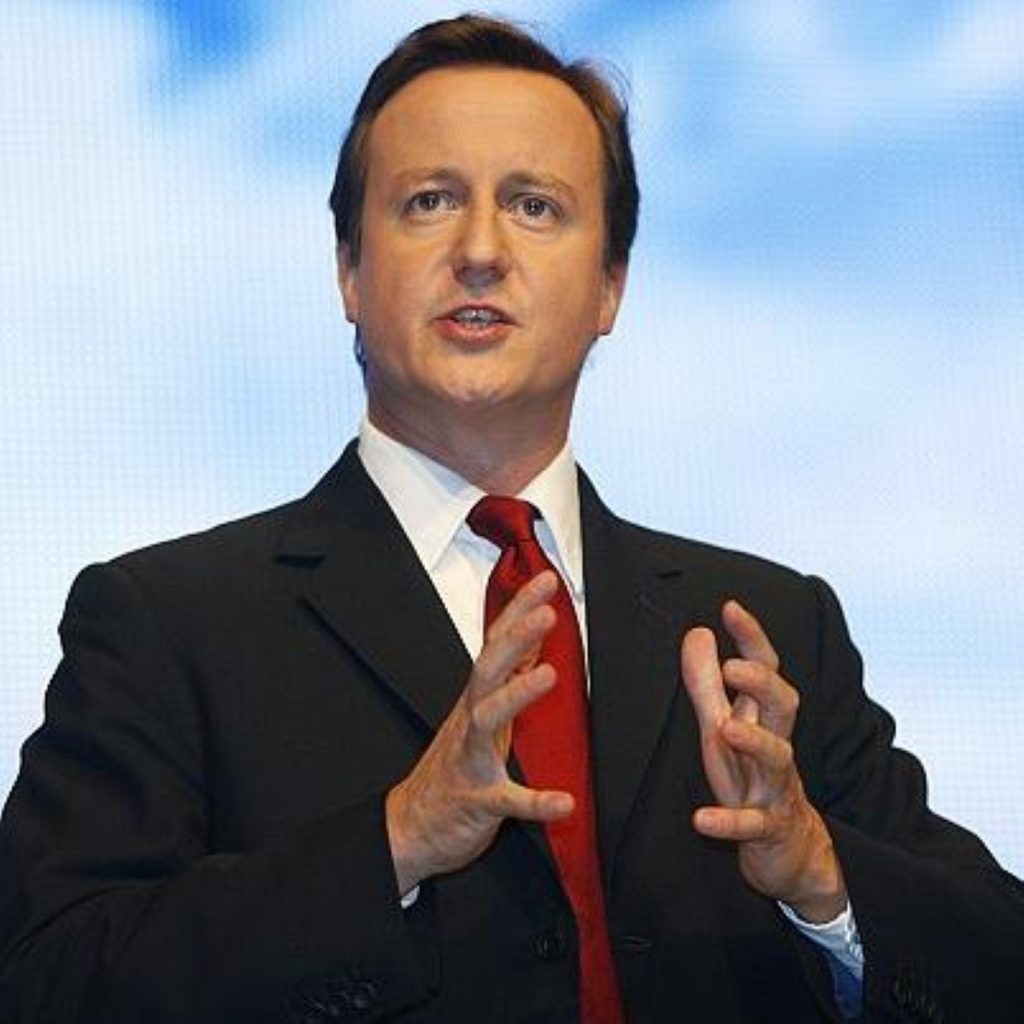Cameron speech: Comment
He’ll never fail at this type of stuff, but you can see chinks in the armour.
David Cameron is second only to Tony Blair at making conference speeches. He can do relaxed and informal, he can do friendly and trustworthy, he can do sturdy and reliable. Today he was the statesman with a dash of brazen honesty.
He used a lectern, unlike last year’s walk-and-talk memory feat. He wore a dark blue suit. He smiled only at the start and the end, as he tried to put his arms around his wife in that painful, toe-curling way politicians now feel they must.
Journalists are usually given typed-up copies of the speech as the leader walks on stage. During Nick Clegg’s speech to the Lib Dem conference I looked out for sections where he had to emphasise lines like “It has to stop” or “we have got to end this nonsense”. These are the sections which show your powers as an orator. Mr Clegg does not quite have it. He can convince, but he cannot stir the heart. Mr Cameron really does have it. His rhetorical touches, his sense of momentum and his timing are all impeccable.


So is his choice of attack. They say homeowners who use weapons against burglars are likely to find those weapons turned against them. So it is with Gordon Brown and Mr Cameron. That which the prime minister uses to attack the Tories is grabbed and used against him, often to great effect. Mr Cameron took the ‘novice’ line of Mr Brown’s speech and made him bleed with it. He used it to portray himself as a rebel, as anti-establishment. “If we listened to this argument about experience, we’d never change a government, ever,” he said.
By defining the speech as statesman-like but simultaneously embracing this notion of representing change Mr Cameron managed to be all things to all people. He was exciting, but safe. Revolutionary, but conservative. And all the while he employed his trademark down-at-home charm to brilliant effect. In one section, he told delegates he had written to the health secretary, Alan Johnson, after learning of a man whose wife died, “robbed of her dignity”, by a hospital infection. Mr Johnson’s reply was filled with exactly the kind of bureaucrat-speak people have come to detest from government ministers, describing in cold terms the various complaint procedures available.
Mr Cameron quoted his letter: “A complaints procedure has been established for the NHS to resolve concern. Each hospital and Primary Care Trust has a Patient Advice and Liaison Service to support people who wish to make a complaint. There is also an Independent Complaints Advocacy Service.”
And then he gave his response: “A Healthcare Commission. A Health Service Ombudsman. A Patient Advice and Liaison Service. An Independent Complaints Advocacy Service. Four ways to make a complaint but not one way for my constituent’s wife to die with dignity.” It was simply devastating. Mr Cameron was the man of the people, filled with indignation against a government that had simply lost touch.
But there is weakness here. The public are prone to relying on experience during times of crisis. We are now without doubt in a time of crisis, and if the public are given the option of experience over youth and radicalism, they may still opt for the former.
How far that affects Mr Cameron’s electoral performance will depend on the extent to which economic issues still govern the front pages in 2010. He had better pray they do not, because after a week of attempting to repair their image on the issue, the Conservatives have failed to make a convincing case for their argument. You could almost see them holding their noses when they had to make the mandatory attacks on City bankers. And today there was ample evidence the Conservatives are on the wrong side of the argument when it comes to the financial downturn.
The first hint came during a section on ‘supporting entrepreneurs’. Mr Cameron put great emphasis on the Conservative policy of cutting corporation tax by three pence. It’s a foundation stone of Tory thought. The best way to improve the economy is to set business free. But right or wrong – and it’s usually wrong – the policy is against the public mood. The public are now suspicious of the rich, and angry at the different rules applied to corporations and speculators. As the economic situation gets worse, questions are raised about income distribution and corporate influence. A section on cutting government debt by “reforming inefficient public services” had similar Thatcher-era overtones.
The Conservatives privately admit they are on the wrong side of this. Their policy has been to make the occasional – and highly resented – attack on ‘greedy bankers’ and then to keep as quiet about their real opinions on the issue as possible. In today’s speech, it was studiously tidied under the carpet. It won’t be that way forever.
Mr Cameron can pull this stuff off almost effortlessly, but lingering doubts about Conservative performance on the economy remain. Today’s speech was excellent and the conference in general succeeded in walking that fine line between optimism and seriousness. But Conservative planners’ greatest hope would have been to fundamentally change the public’s attitude towards them on economic issues. In that, both the speech and the conference failed.
Ian Dunt












